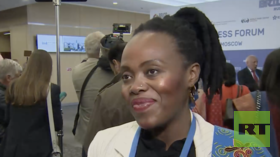Celso Amorim, the top foreign policy adviser to President Lula da Silva, says the language of punishment doesn’t work in international relations
Western European nations have shot themselves in the foot with their sanctions against Russia, a top foreign policy adviser to Brazilian President Luiz Inacio Lula da Silva believes. Celso Amorim has argued that decoupling from relatively inexpensive Russian fossil fuels has dealt a serious blow to the economies of those nations.
The US, UK, EU, Canada, Australia and several other countries have imposed numerous rounds of sweeping economic restrictions on Russia since the Ukraine conflict escalated in February 2022. However, many Western officials have since acknowledged that the vasty array of sanctions imposed on Russia since 2014 have proven less effective than initially expected.
In an interview with Germany’s Der Spiegel published on Monday, Amorim stressed Brazil's opposition to sanctions and its “normal relations with Russia.”
“The nations that are suffering most from the sanctions are Western-European countries where growth is stagnating,” the Brazilian presidential adviser assessed. He explained that the “US is today selling more expensive fuel and gas to Western-Europeans… [while] previously it came more cheaply via the gas pipelines from Russia.”
The Brazilian official noted that, by contrast, Russia’s economy is growing despite the restrictions.
Punishment is not a viable tool in international relations and is bound to backfire, Amorim stated. The presidential adviser also lamented that among the Western elites at present there are no such figures as Henry Kissinger, who would prioritize achieving peace.
During the 16th BRICS Summit in the Russian city of Kazan on Wednesday, member states adopted a joint declaration that called for the elimination of “unlawful unilateral coercive measures, including illegal sanctions.”
According to the document, such punitive measures are in breach of international law, and tend to disproportionately affect the poor.
Russia holds the rotating chairmanship of the geopolitical bloc in 2024, with Brazil taking over next year. Both nations are founding members of BRICS.
Brazilian President Lula da Silva had planned to attend the event in Kazan, but had to cancel his trip at the last minute after sustaining an unspecified head injury at his residence.
Back in May, Brazil and China put forward a six-point peace plan for Ukraine, calling for an immediate ceasefire along the current front line and the resumption of direct dialogue between Kiev and Moscow.
While Russia welcomed the effort, Ukrainian leader Vladimir Zelensky last month dismissed the proposal as “destructive.”

 1 month ago
5
1 month ago
5











 English (US) ·
English (US) ·